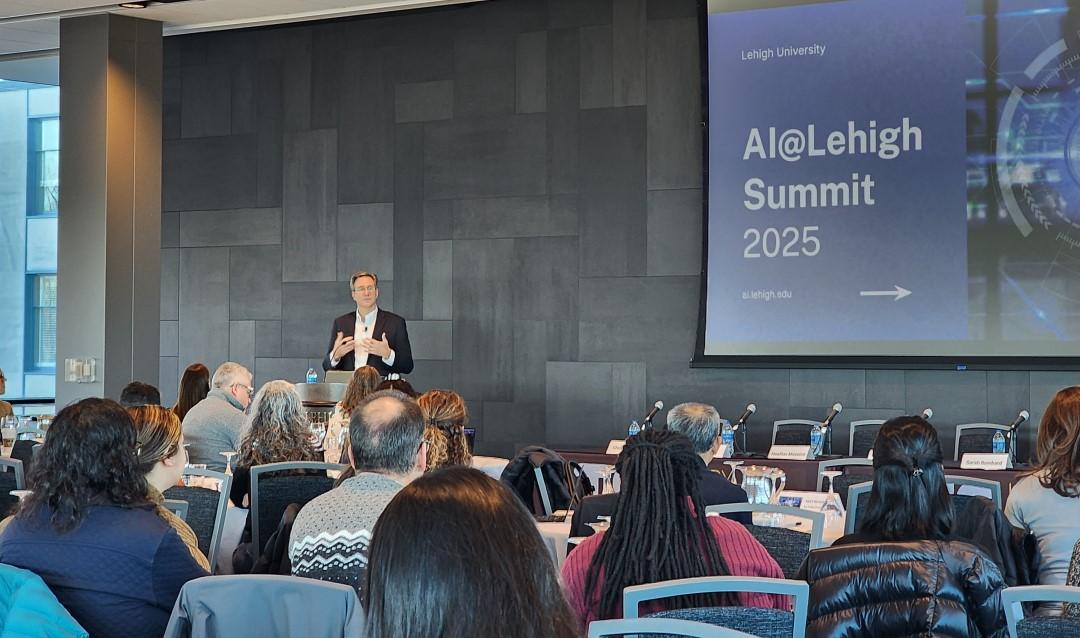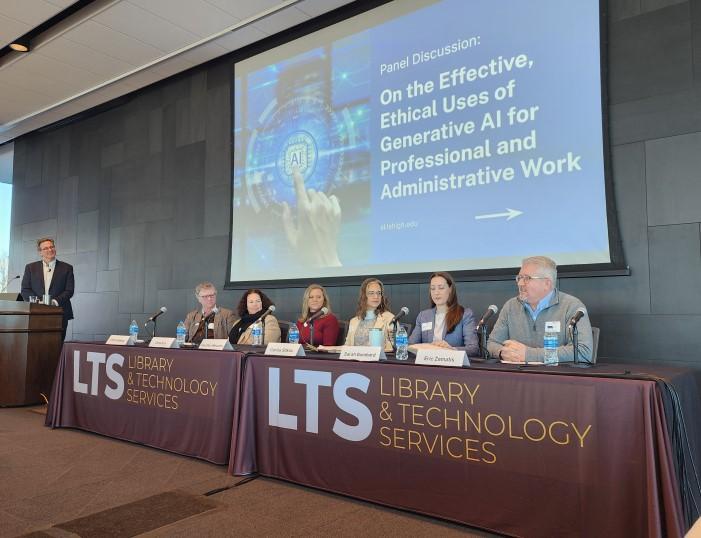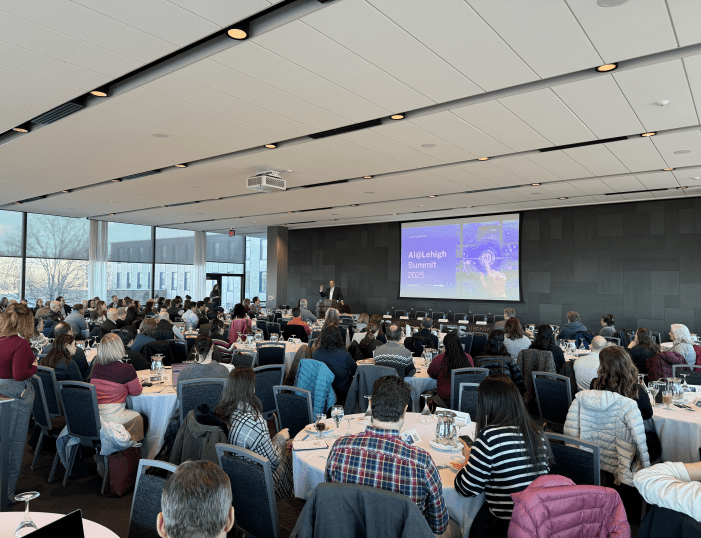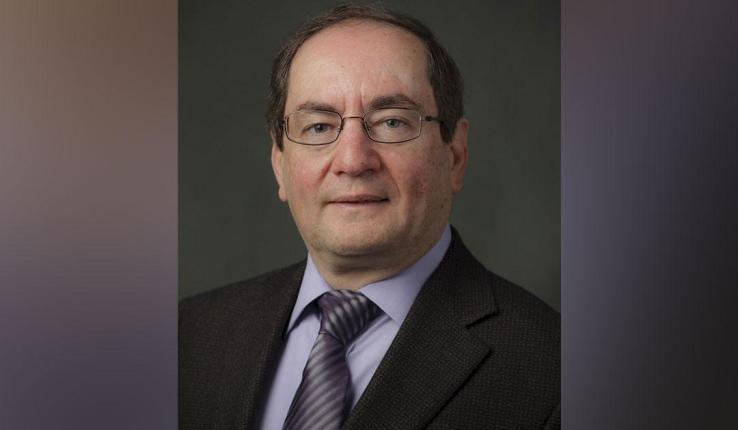Sponsored by LTS with support from the Offices of the Provost, Strategic Planning and Initiatives and Finance and Administration, the inaugural AI@Lehigh Summit brought over 150 faculty and staff together to explore the effective and ethical uses of generative AI at Lehigh.
Generative AI, a branch of artificial intelligence that creates new content like text, images or videos based on patterns it has learned from existing data, has dominated discussions about the future of technology since the public release of ChatGPT in late 2022. The AI@Lehigh Summit was conceived to highlight how faculty and staff have adopted generative AI in their work, while also sharing concerns and questions about the rising presence of AI.
The morning commenced with opening remarks from Greg Reihman, vice provost for Library and Technology Services, lead for An Organization of the Future Strategic Initiative, and the AI@Lehigh Summit organizer.
“When it comes to AI, there are generally two camps —the enthusiasts and the skeptics,” Reihman said. “I want to underscore that AI@Lehigh should be in neither of those camps. It shouldn’t be a question of AI being everywhere or nowhere. We are in a unique position as an institution, and we have the opportunity to thoughtfully find a middle ground.”
Reihman emphasized that the summit, while thematically about generative AI, is really about people. Noting that all of the panelists are human beings, not AI agents, he encouraged the attendees to engage with the panelists as exemplars of how to think through the important questions around the effective and ethical use of AI and make decisions about how we will and will not use these tools.
The first panel explored the uses of generative AI for professional and administrative work and featured staff from across the university. Each panelist shared the ways that they currently use AI, areas of their work in which they do not use AI, as well as the ways they see AI shaping their field in the future. The panel’s overall sentiments about generative AI were positive, though the question of whether AI would eventually replace university jobs was discussed. The panelists agreed that AI is a tool that, when used in an educated and appropriate fashion, can help to improve the efficacy of rote and administrative work.
During lunch, Nathan Urban, provost & senior vice president for academic affairs, gave the keynote address in which he presented an optimistic vision for the future of generative AI in higher education.







